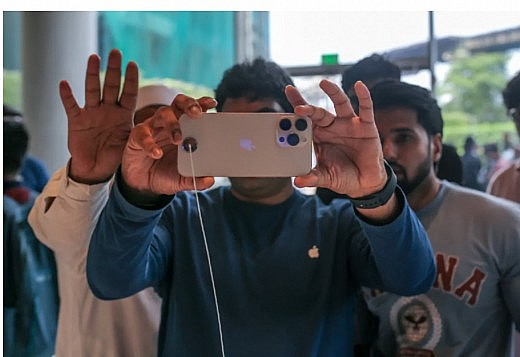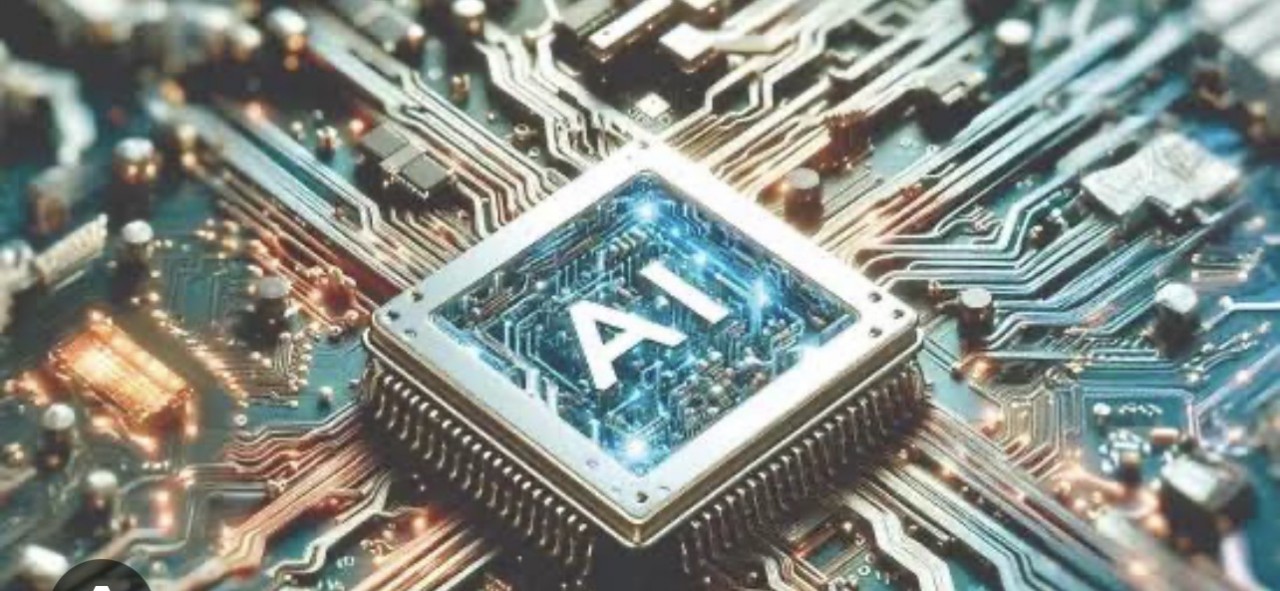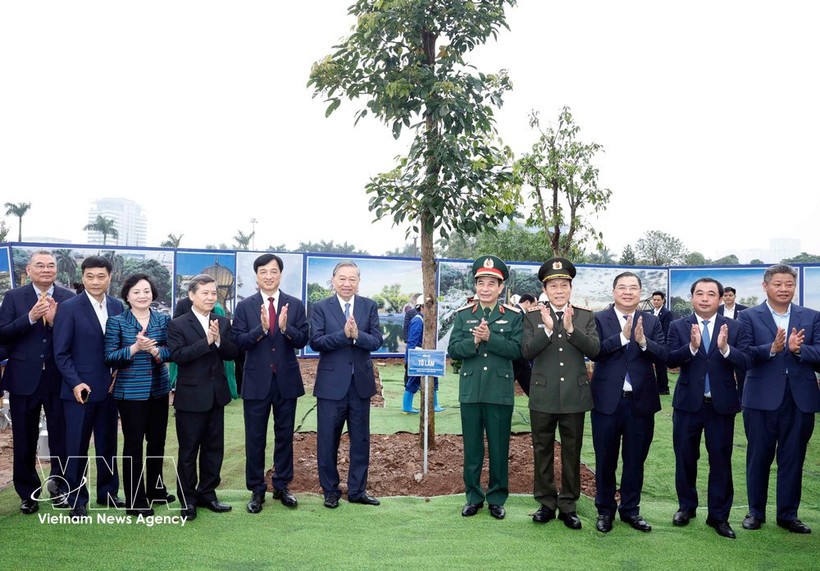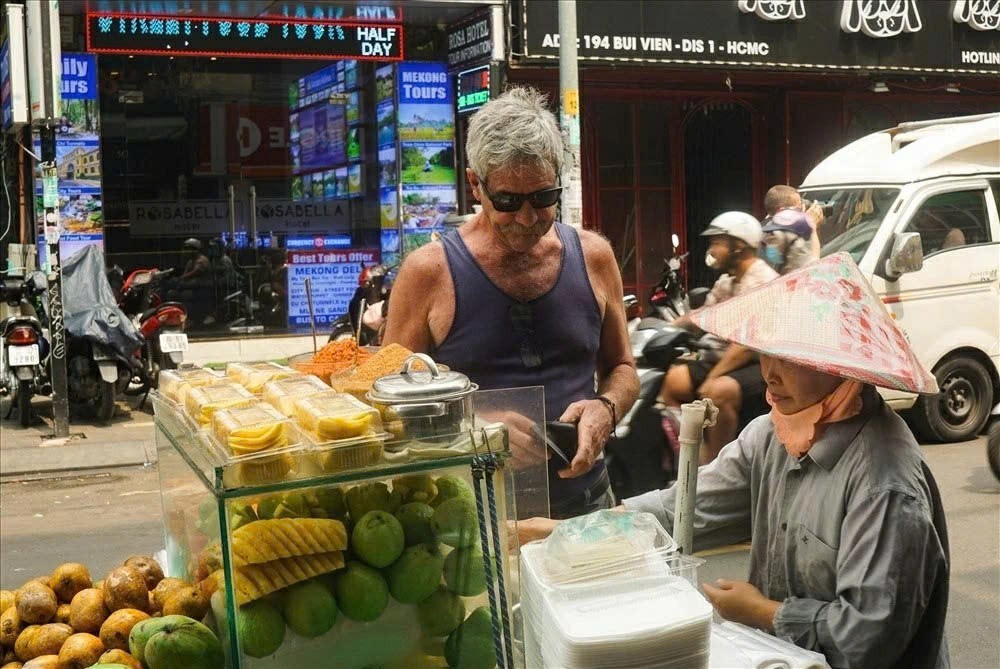Apple Expands iPhone Production in India for US-Bound New Models
 |
| Apple iPhone 16 Pro smartphone on display at the Apple Inc. BKC store in Mumbai, India.Photographer: Dhiraj Singh/Bloomberg |
The company is producing all four iPhone 17 models in India ahead of their debut next month, marking the first time that all new variations — including pro-level versions — will ship from the South Asian country from the get-go, according to people with knowledge of the matter.
Apple has broadened the number of local factories making iPhones after shifting the vast majority of the device’s production for the US market to India from China in a bid to lessen the impact of tariffs.
The expansion includes Tata Group’s plant in Tamil Nadu state’s Hosur and Foxconn Technology Group’s production hub close to the Bangalore airport, which have both come online recently. In a sign of Tata’s increasing role as an Apple partner, plants controlled by the local conglomerate will account for as much as half of India’s iPhone output over the next two years, said the people, who asked not to be identified discussing private manufacturing planning.
In tandem with Apple’s geographical shifts, the value of iPhone exports from India has climbed substantially. In the four-month period beginning in April, $7.5 billion worth of iPhones were exported from the country. That value represents the factory gate price of the devices. It marks an acceleration from the $17 billion worth of iPhones exported from India over the entire previous fiscal year.
Apple and Tata representatives declined to comment, while Foxconn didn’t respond to a request for comment.
Earlier this year, Apple expanded iPhone production in India to fulfill the majority of US demand. That came in an effort to lessen the impact of tariffs on goods exported from China. Apple said earlier this month it expects a $1.1 billion headwind in the current period from tariffs.
The Trump administration has so far exempted electronics like the iPhone from sectoral tariffs, though they may remain subject to individual country levies. Apple has to navigate the Trump administration’s constantly shifting tariffs landscape, though over the longer term the company remains resolved to diversify a chunk of production away from China.
The centerpiece of Apple’s iPhone 17 strategy is a new slimmed-down model, Bloomberg News has reported. While Apple isn’t anticipating it to be an especially hot seller compared with its Pro models, it’s expected to sit at the core of its marketing efforts. For the first time in half a decade, Apple is meaningfully redesigning its high-end iPhones, adding a new rear-camera system with vastly improved video recording and photo zoom capabilities.
Apple is also planning to make a new iPhone 17e in India. That phone will launch early next year, succeeding this year’s iPhone 16e. And it’s already discussing plans for iPhone 18 production in the region — with a ramp-up in early work expected in the coming weeks.
The expansion underscores Apple’s yearslong effort to make India the cornerstone of its iPhone manufacturing strategy. Though Trump has slapped 50% tariffs on India, partly as a penalty for buying Russian oil, iPhones have so far emerged unscathed under exemptions.
This month, Chief Executive Officer Tim Cookpledged Apple will invest $600 billion to expand the company’s operations in the US over four years, part of an effort to persuade President Donald Trump to keep India-made iPhones exempted from tariffs. A majority of iPhones sold in the US will be imported from India, Cook has said.
Apple has expanded its supplier base in India over the years as it has steadily diversified beyond China following Covid shutdowns that affected production and a trade war between Washington and Beijing. The Cupertino, California-based company now also engineers, develops and tests iPhones in India.
China has tried to prevent foreign investors from fleeing. Earlier this year, officials in Beijing verbally encouraged regulatory agencies and local governments to curb technology transfers and equipment exports to India and Southeast Asia in what is a potential attempt to prevent companies from shifting manufacturing elsewhere.
Then, Foxconn asked hundreds of Chinese engineers and technicians to return home from its iPhone factories in India. Apple has flown in engineers from Taiwan and Japan as replacements at higher costs, but overall production is on track, the people said.
Recently, China and India have sought better relations amid unpredictable US trade policies.
Apple first tested iPhone assembly in India in 2017 with its SE model. In 2021, its suppliers leveraged Prime Minister Narendra Modi’s state subsidies to widen production.
Salt-to-software conglomerate Tata Group has emerged as the only Indian iPhone assembler. It bought out Wistron Corp.’s Apple factory in Karnataka state in late 2023, and also owns a controlling stake in Pegatron Corp.’s plant just outside of Chennai, where Taiwan’s Foxconn also owns an iPhone-making unit.
Most read
Recommended
 Economy
Economy
The billions given to charity by ordinary Indians every year
 Economy
Economy








